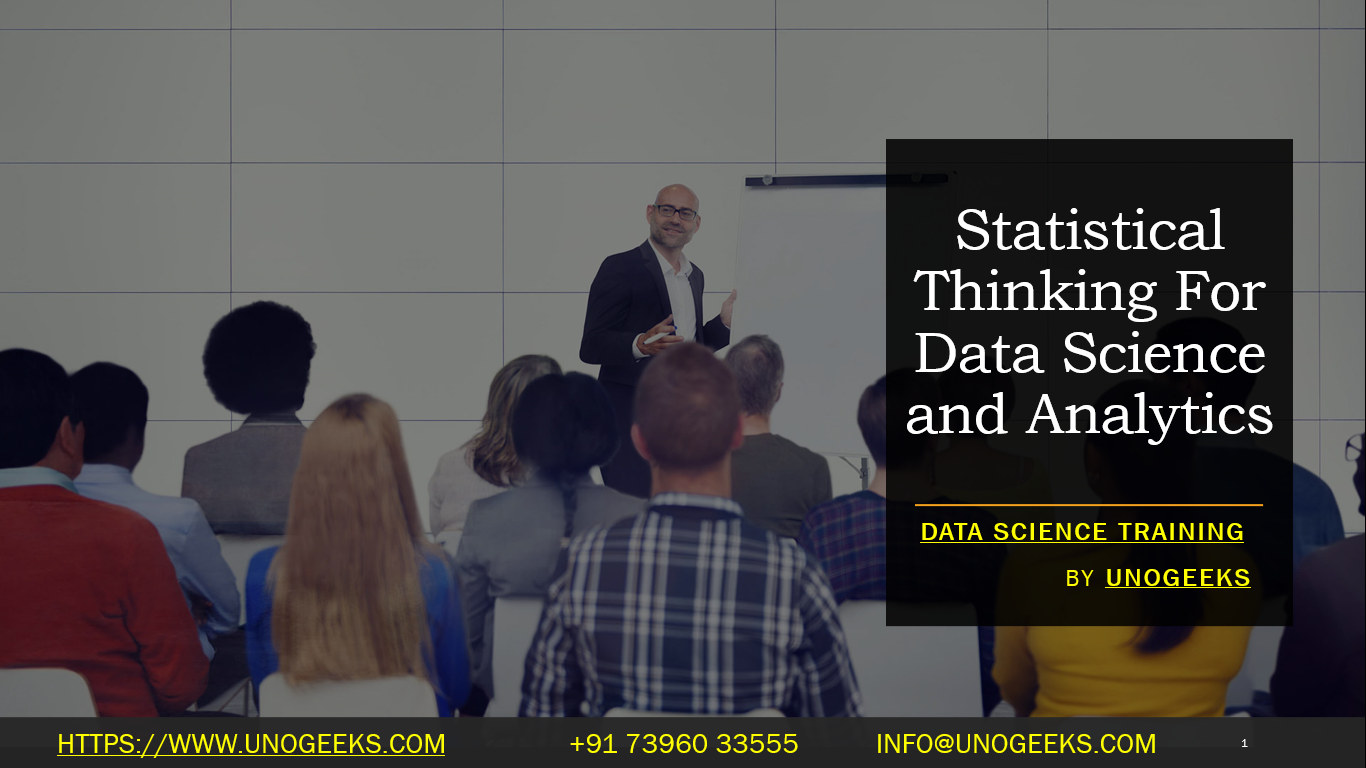Statistical Thinking For Data Science and Analytics
Statistical thinking is a fundamental concept in data science and analytics, emphasizing the use of statistical methods, tools, and reasoning to make informed decisions and draw meaningful insights from data. Statistical thinking underpins the entire data analysis process and helps ensure that data-driven conclusions are reliable and accurate. Here are key principles and practices related to statistical thinking for data science and analytics:
Data Collection: Statistical thinking begins with careful and unbiased data collection. It involves defining the population or sample of interest, selecting appropriate data sources, and ensuring data quality and representativeness.
Descriptive Statistics: Descriptive statistics are used to summarize and describe the main features of a dataset. This includes measures such as mean, median, mode, standard deviation, and percentiles.
Exploratory Data Analysis (EDA): EDA involves using statistical techniques and data visualization to explore data patterns, identify outliers, detect trends, and gain initial insights into the data’s distribution and characteristics.
Inferential Statistics: Inferential statistics are used to make inferences or predictions about a population based on a sample of data. Techniques include hypothesis testing, confidence intervals, and regression analysis.
Probability: Probability theory is fundamental to statistical thinking. It helps quantify uncertainty and randomness in data and is used in various statistical models and decision-making processes.
Sampling: Sampling methods are essential for selecting representative subsets of data from larger populations. Random sampling and stratified sampling are common techniques used to ensure the validity of inferences.
Statistical Models: Statistical models are mathematical representations of relationships within data. Linear regression, logistic regression, and time series models are examples used in data analysis and prediction.
Hypothesis Testing: Hypothesis testing involves formulating a null hypothesis (typically no effect or no difference) and an alternative hypothesis, then using statistical tests to determine whether there is enough evidence to reject the null hypothesis in favor of the alternative.
Statistical Software: Proficiency in statistical software such as R, Python (with libraries like NumPy, pandas, and SciPy), and specialized tools like SPSS or SAS is essential for conducting data analysis.
Experimental Design: Proper experimental design helps ensure the validity of experiments and studies. Randomization, control groups, and experimental variables are key components.
Statistical Ethics: Data scientists must adhere to ethical guidelines when conducting statistical analyses, including considerations for data privacy, transparency, and fairness.
Model Validation: Statistical thinking involves validating the accuracy and reliability of statistical models through techniques like cross-validation, bootstrapping, and model evaluation metrics.
Bias and Variance Trade-off: Understanding the trade-off between model bias and variance is crucial for model selection and optimization.
Statistical Communication: Data scientists should effectively communicate their findings to non-technical stakeholders through clear and concise explanations, data visualizations, and reports.
Continuous Learning: The field of statistics and data science is continually evolving. Data scientists must stay updated with new statistical techniques and best practices.
Data Science Training Demo Day 1 Video:
Conclusion:
Unogeeks is the No.1 IT Training Institute for Data Science Training. Anyone Disagree? Please drop in a comment
You can check out our other latest blogs on Data Science here – Data Science Blogs
You can check out our Best In Class Data Science Training Details here – Data Science Training

———————————-
For Training inquiries:
Call/Whatsapp: +91 73960 33555
Mail us at: info@unogeeks.com
Our Website ➜ https://unogeeks.com
Follow us:
Instagram: https://www.instagram.com/unogeeks
Facebook:https://www.facebook.com/UnogeeksSoftwareTrainingInstitute
Twitter: https://twitter.com/unogeeks
